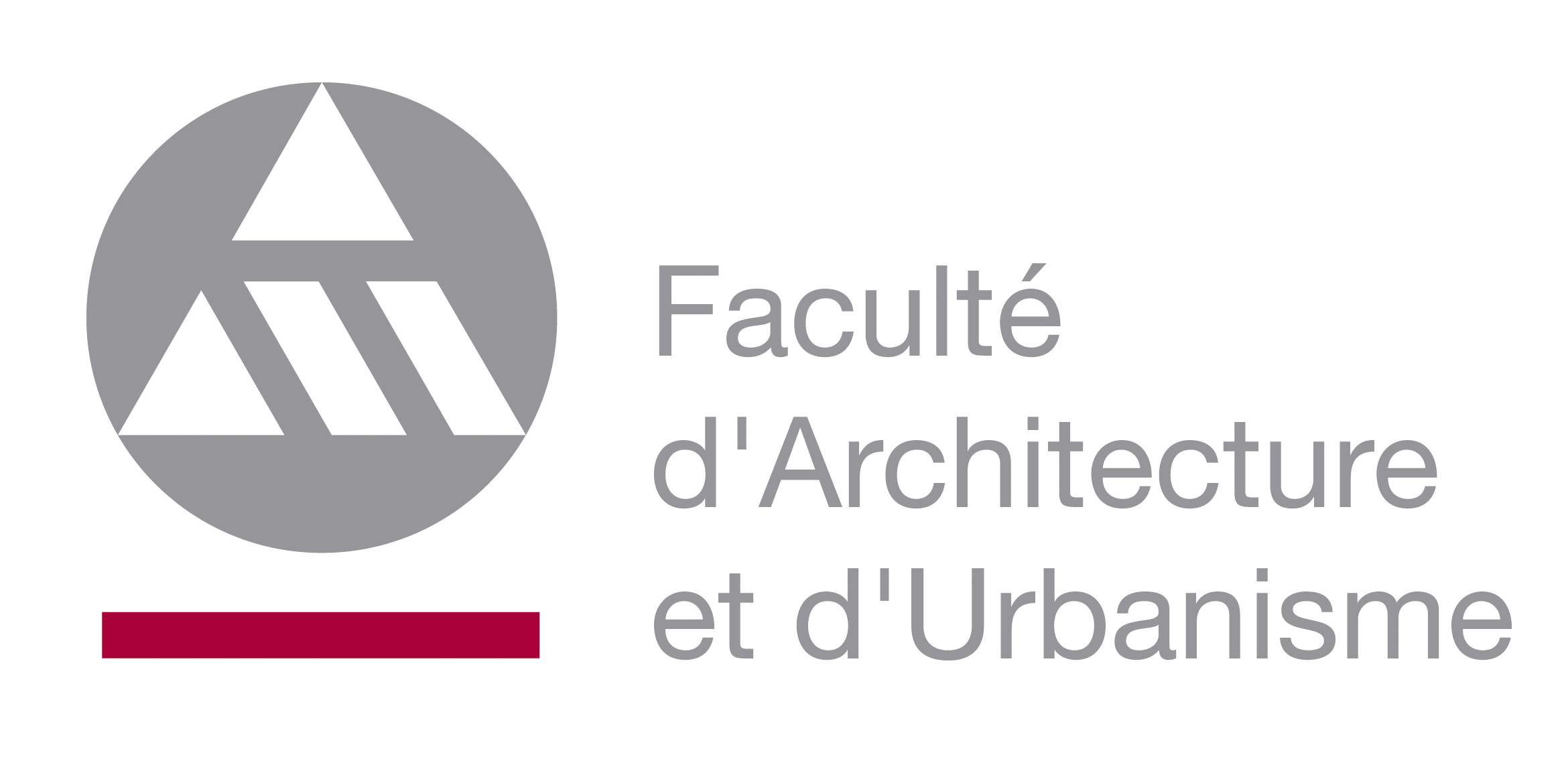 | Study programme 2019-2020 | Français | |
 | Philosophy | ||
Programme component of Bachelor's in Architecture à la Faculty of Architecture and Urban Planning |
| Students are asked to consult the ECTS course descriptions for each learning activity (AA) to know what assessment methods are planned for the end of Q3 |
|---|
| Code | Type | Head of UE | Department’s contact details | Teacher(s) |
|---|---|---|---|---|
| UA-B2-ARCHIT-004-M | Compulsory UE | DARCIS Damien | A550 - Service des Arts et Techniques de Représentation |
|
| Language of instruction | Language of assessment | HT(*) | HTPE(*) | HTPS(*) | HR(*) | HD(*) | Credits | Weighting | Term |
|---|---|---|---|---|---|---|---|---|---|
| Français | 24 | 0 | 0 | 0 | 0 | 2 | 2.00 | 2nd term |
| AA Code | Teaching Activity (AA) | HT(*) | HTPE(*) | HTPS(*) | HR(*) | HD(*) | Term | Weighting |
|---|---|---|---|---|---|---|---|---|
| A-ARSO-102 | Philosophy | 24 | 0 | 0 | 0 | 0 | Q2 | 100.00% |
| Programme component |
|---|
Objectives of Programme's Learning Outcomes
- Instruct an architectural issue
- Build an architectural culture based on theoretical and critical knowledge and personal reading
- Contextualise their approach to architecture
- Make choices
- Demonstrate reflexivity, openness and initiative
- Demonstrate ethical values
Learning Outcomes of UE
1) To give students a knowledge of the great philosophical debates that mark the history of artistic and architectural production; 2) To promote the understanding and the handling of aesthetic concepts while sensitizing them to the art of the epochs concerned; 3) Provide them with tools to examine their own artistic or architectural practice.
Content of UE
The philosophy of art is often reduced to an abstract questioning of art and beauty. We thus wonder about the definition of these objects presented as timeless, as if they were passing through the stories and the time. In this context, the great philosophical theories are mobilized as so many opinions, to the degree of various sophistication, but each time peremptory - "Kant said that ...". However, as soon as one looks more closely at the questions about the beautiful and the art, fundamental differences appear.
- First, these questions about the beautiful and the art are born each time in a precise historical context. During the Antiquity, for example, paradoxically presented as the epoch of great art, philosophers like Plato or Aristotle wonder about the Beautiful, but this concept is related to Good or Good and not to Art. More precisely, the question of the beautiful is inscribed in the field of morality and not of aesthetics - no word exists then to differentiate, among manual activities, the work of the artist from that of the artisan. During the Christian Middle Ages, the beautiful was linked to the divine, and some centuries later, under the Ancien Régime, the representation of a social order conceived as natural. In fact, we must wait for the French revolution so that questions of beauty and art can be asked together.
Secondly, these interrogations each time make sense within a more general philosophical system. A philosophical system elaborated around the question of political emancipation will not question artistic productions in the same way - it will not ask the same questions - a system built around a metaphysical problem like that of finitude. The former may find in art or artistic creation a form of resistance to the reactionary tendencies of a society, whereas the latter will see it as one of the privileged means of overcoming the anguish of death.
In short, the philosophy of art is not a well delimited field that brings together scattered reflections on art and beauty, but a diffracted field opening up questions of metaphysics, morality and political philosophy. In this course, I would like to give substance to questions about art and beauty by replacing them (1) in their historical context and reintegrating them (2) into philosophical systems constructed around specific questions. In doing so, I would like to show how the questions about art and beauty, far from being reduced to opinion, opinion or subjective judgment, involve in each case broader problems affecting major metaphysical and moral questions and political systems of an era and / or a system of thought.
Prior Experience
None.
Type of Assessment for UE in Q2
- Written examination
Q2 UE Assessment Comments
Study only the contents of the syllabus. The examination is in the form of a questionnaire with multiple choices: a single answer by question will be validated (quotation 1 or 0).
Total level-headedness on 20.
The day of the examination, the students will receive the questionnaire.
The syllabus and the notes cannot be consulted during the examination.
Dictionaries, telephone and computer are forbidden.
Type of Assessment for UE in Q3
- Oral examination
- Written examination
Q3 UE Assessment Comments
The students who missed the examination of the first session can present an oral examination.
They will have to answer the questions of the teacher.
The test will concern only chapters of the syllabus.
Level-headedness(Weighting) on 20.
Type of Teaching Activity/Activities
| AA | Type of Teaching Activity/Activities |
|---|---|
| A-ARSO-102 |
|
Mode of delivery
| AA | Mode of delivery |
|---|---|
| A-ARSO-102 |
|
Required Reading
| AA | |
|---|---|
| A-ARSO-102 |
Required Learning Resources/Tools
| AA | Required Learning Resources/Tools |
|---|---|
| A-ARSO-102 | Edouard Delruelle, Métamorphoses du Sujet, De Boeck |
Recommended Reading
| AA | |
|---|---|
| A-ARSO-102 |
Recommended Learning Resources/Tools
| AA | Recommended Learning Resources/Tools |
|---|---|
| A-ARSO-102 | Not applicable |
Other Recommended Reading
| AA | Other Recommended Reading |
|---|---|
| A-ARSO-102 | Not applicable |
Grade Deferrals of AAs from one year to the next
| AA | Grade Deferrals of AAs from one year to the next |
|---|---|
| A-ARSO-102 | Unauthorized |